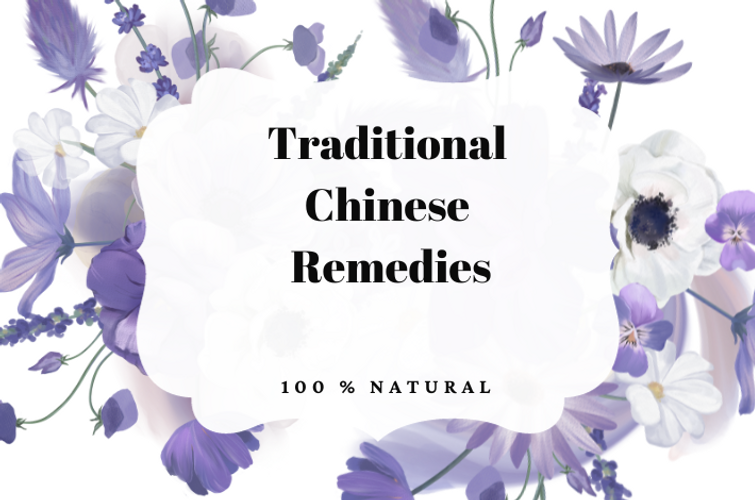Unlock the immense potential of your well-being through the profound wisdom of traditional Chinese herbal remedies.
Dec 4th 2023
Understanding Chinese Herbal Remedies
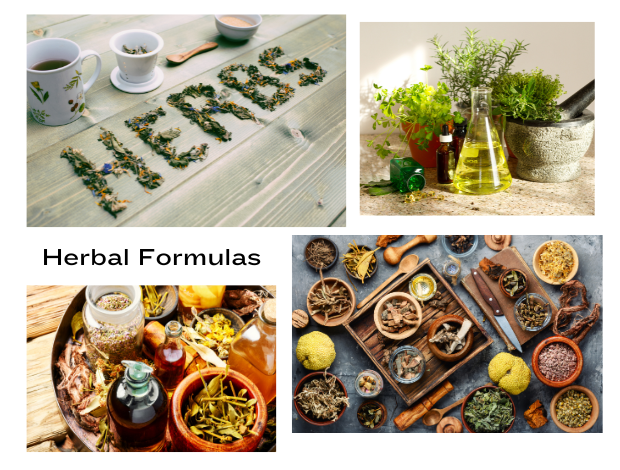
Chinese herbal remedies, also known as traditional Chinese medicine (TCM) herbal formulas, are combinations of various plants, minerals, and animal products used to treat and prevent a wide range of health conditions. These remedies are based on the principles of TCM, which emphasizes restoring the body's balance and harmony to promote overall well-being.
Some key characteristics of Chinese herbal remedies include:
1. Individualized Prescriptions: TCM practitioners carefully consider each patient's unique constitution, symptoms, and lifestyle when formulating herbal remedies. This personalized approach ensures that the treatment aligns with the individual's specific needs.
2. Complex Formulas: Chinese herbal remedies often consist of a blend of multiple ingredients, each with its distinct properties and therapeutic effects. The combination of herbs creates a synergistic effect, enhancing the overall efficacy of the remedy.
3. Long History of Use: TCM herbal remedies have been used for centuries in China, passed down through generations of practitioners. This extensive history provides empirical evidence of their effectiveness and safety.
4. Holistic Approach: TCM views the body as an interconnected system, and herbal remedies are not solely focused on treating specific symptoms. They aim to address the underlying imbalances that contribute to health issues.
5. Variety of Applications: Chinese herbal remedies are used to treat a wide range of health conditions, including digestive disorders (stomach upset, constipation, diarrhea), pain management (arthritis, headaches, menstrual cramps), respiratory conditions (asthma, allergies, common cold), emotional and mental health (anxiety, depression, insomnia), gynecological issues (irregular periods, premenstrual syndrome (PMS)), and immune system support (enhancing overall immunity).
6. Safety Considerations: While generally considered safe when used appropriately, Chinese herbal remedies can interact with certain medications or have potential side effects. It is crucial to consult with a qualified TCM practitioner before using any herbal remedies.
Three Of The Most Popular Chinese Herbal Formulas Used Today Are:
Here are 3 of the most popular Chinese herbal formulas used:
1. Xiao Yao Wan Also Known As Free & Easy Wanderer Teapills
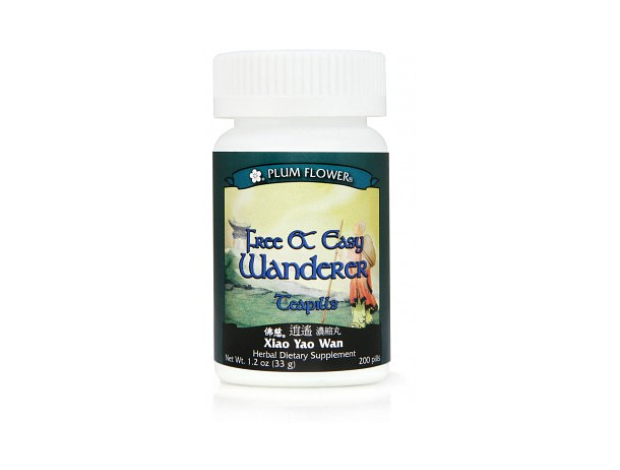
Xiao Yao Wan, also known as逍遥散 (Xiāoyáo Sàn), is a traditional Chinese herbal formula that has been used for centuries.
Xiao Yao Wan comprises eight herbs that work together to harmonize the liver, spleen, and heart, promoting overall well-being. The herbs include:
- Chai Hu (Radix Bupleuri): This herb dispels heat and promotes the smooth flow of qi, particularly in the liver and gallbladder.
- Dang Gui (Radix Angelicae): This herb nourishes the blood and promotes circulation, addressing liver stagnation and blood deficiency.
- Bai Shao (Radix Paeoniae Albae): This herb soothes the liver and relieves irritability and emotional disturbances.
- Sheng Di Huang (Radix Rehmanniae): This herb nourishes the yin (female energy) and supports kidney function.
- Gan Cao (Radix Glycyrrhizae): This herb harmonizes the various herbs and promotes the absorption of other components.
- Zhi Zi (Fructus Gardeniae): This herb clears heat and promotes liver detoxification.
- Fu Ling (Sclerotium Poriae Cocos): This herb strengthens the spleen and dampens excess heat.
- Bo He (Mentha Herba): This herb releases the exterior and promotes the dispersal of excess heat.
Therapeutic Applications of Xiao Yao Wan
Xiao Yao Wan is primarily used to treat liver stagnation, a condition characterized by emotional disturbances, menstrual irregularities, and digestive issues. It is also effective in addressing a variety of other health concerns, including:
- Anxiety and depression: Xiao Yao Wan's ability to regulate qi and soothe the liver can help alleviate symptoms of anxiety, depression, and mood swings.
- Premenstrual syndrome (PMS): The formula's harmonizing effects on the liver and spleen can help reduce PMS symptoms such as bloating, irritability, and cramps.
- Irregular periods: Xiao Yao Wan can help regulate menstrual cycles and alleviate symptoms associated with irregular periods.
- Digestive problems: The formula's ability to promote qi flow and address liver stagnation can help improve digestion and relieve symptoms such as bloating, gas, and constipation.
- Headaches: Xiao Yao Wan's ability to dispel excess heat and promote qi flow can help alleviate headaches associated with liver stagnation.
Dosage and Administration
Xiao Yao Wan is typically available in pill or capsule form and is generally taken three times per day with or without food. The dosage may vary depending on the individual's condition, age, and practitioner's recommendations. It is important to consult with a qualified TCM practitioner or healthcare provider to determine the appropriate dosage and duration of treatment.
Safety Considerations
Xiao Yao Wan is generally considered safe when used appropriately under the guidance of a qualified TCM practitioner. However, it is important to note that certain individuals may experience mild side effects, such as diarrhea, stomach discomfort, or skin rash. Pregnant or breastfeeding women should consult with their healthcare provider before using Xiao Yao Wan.
Conclusion
Xiao Yao Wan is a well-established TCM formula with a long history of safe and effective use. Its ability to regulate qi and address liver stagnation makes it a valuable treatment option for a variety of health concerns, including anxiety, depression, PMS, irregular periods, digestive problems, and headaches. As with any herbal remedy, it is crucial to consult with a qualified healthcare provider to determine the suitability and appropriate dosage of Xiao Yao Wan for your individual needs.
2. Liu Wei Di Huang Wan Also known As Six Flavor Teapills 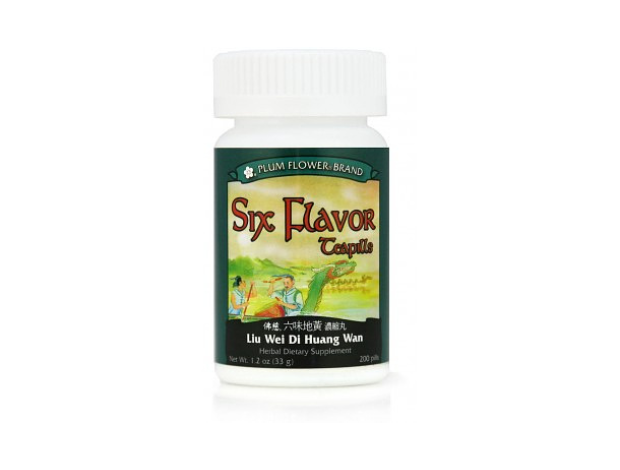
Liu Wei Di Huang Wan, also known as六味地黄丸 (Liù Wèi Dìhuáng Wán), is a traditional Chinese herbal formula that has been used for centuries to treat a variety of conditions. It is a complex formula composed of six herbs, each with its unique properties and therapeutic effects. The combined action of these herbs is believed to nourish the kidneys and yin (female energy), promoting overall well-being.
Composition of Liu Wei Di Huang Wan
Liu Wei Di Huang Wan comprises six herbs that work together to nourish the kidneys, replenish the yin, and promote blood circulation. The herbs include:
- Shu Di Huang (Rehmanniae Radix Preparata): This herb nourishes the yin and blood, moistens the dryness, and supports kidney function.
- Shan Zhu Yu (Fructus Corni): This herb astringes and strengthens the kidney, supports kidney function, and promotes urination.
- Shan Yao (Rhizoma Dioscoreae): This herb nourishes the yin and blood, supports kidney function, and promotes urination.
- Ze Xie (Rhizoma Alismatis): This herb clears heat and dampness, promotes urination, and supports kidney function.
- Mu Dan Pi (Cortex Moutan): This herb cools the blood, clears heat, and nourishes the yin.
- Fu Ling (Sclerotium Poriae Cocos): This herb strengthens the spleen, supports kidney function, and promotes urination.
Therapeutic Applications of Liu Wei Di Huang Wan
Liu Wei Di Huang Wan is primarily used to treat kidney deficiency, a condition characterized by symptoms such as low back pain, fatigue, dry mouth, and constipation. It is also effective in addressing a variety of other health concerns, including:
- Sexual dysfunction: Liu Wei Di Huang Wan can help improve sexual function in men and women with kidney deficiency.
- Menopause: Liu Wei Di Huang Wan can help relieve symptoms of menopause, such as hot flashes, night sweats, and vaginal dryness.
- Osteoporosis: Liu Wei Di Huang Wan can help strengthen bones and reduce the risk of osteoporosis in people with kidney deficiency.
- Glaucoma: Liu Wei Di Huang Wan can help reduce intraocular pressure in people with glaucoma.
- Dementia: Liu Wei Di Huang Wan can help improve cognitive function in people with dementia.
Dosage and Administration
Liu Wei Di Huang Wan is typically available in pill or capsule form and is generally taken twice per day with or without food. The dosage may vary depending on the individual's condition, age, and practitioner's recommendations. It is important to consult with a qualified TCM practitioner or healthcare provider to determine the appropriate dosage and duration of treatment.
Safety Considerations
Liu Wei Di Huang Wan is generally considered safe when used appropriately under the guidance of a qualified TCM practitioner. However, it is important to note that certain individuals may experience mild side effects, such as diarrhea, stomach discomfort, or skin rash. Pregnant or breastfeeding women should consult with their healthcare provider before using Liu Wei Di Huang Wan.
Conclusion
Liu Wei Di Huang Wan is a well-established TCM formula with a long history of safe and effective use. Its ability to nourish the kidneys and yin makes it a valuable treatment option for a variety of health concerns, including kidney deficiency, sexual dysfunction, menopause, osteoporosis, glaucoma, and dementia. As with any herbal remedy, it is crucial to consult with a qualified healthcare provider to determine the suitability and appropriate dosage of Liu Wei Di Huang Wan for your individual needs.
3. Yin Chiao Chieh Tu Pian
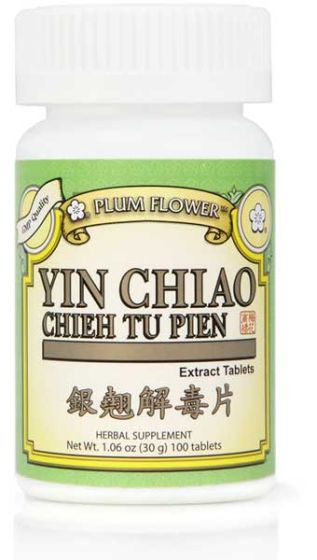
Yin Chiao Chieh Tu Pian, also known as 銀翹散 (Yínqiāo Sàn) or Yin Qiao Jie Du Pian, is a traditional Chinese herbal formula that has been used for centuries to treat a wide range of ailments, particularly those related to fever, sore throat, and upper respiratory infections. Its name translates to "Silver Flower Dispersing Decoction," reflecting its ability to clear heat and toxins from the body.
Composition of Yin Chiao Chieh Tu Pian
This versatile formula is composed of five herbs, each with its distinct properties and therapeutic effects:
- Lonicera Japonicae Flos (Yin Chen Hua): This herb, also known as honeysuckle flower, is a potent antipyretic (fever-reducing) and anti-inflammatory agent. It helps clear heat and toxins from the body, alleviating symptoms like fever, sore throat, and upper respiratory congestion.
- Forsythiae Fructus (Lian Qiao): This herb, derived from the forsythia plant, is another effective antipyretic and anti-inflammatory agent. It also possesses antiviral properties, making it beneficial in treating upper respiratory infections caused by viruses.
- Scutellariae Radix (Ban Lan Gen): This herb, commonly known as skullcap root, has strong anti-inflammatory and antiviral properties. It helps reduce inflammation and clear heat, particularly in the lungs and upper respiratory tract.
- Radix Isatidis Tindctoriae (Da Qing Ye): This herb, extracted from the woad plant, is a potent anti-bacterial and antiviral agent. It helps combat infections and clear heat and toxins from the body.
- Glycyrrhizae Radix (Gan Cao): This herb, also known as licorice root, acts as a harmonizing agent, enhancing the overall effectiveness of the formula. It also possesses anti-inflammatory and anti-toxic properties.
Therapeutic Applications of Yin Chiao Chieh Tu Pian
Yin Chiao Chieh Tu Pian is primarily used to treat upper respiratory infections, including common colds, influenza, and sore throats. Its ability to clear heat and toxins, reduce inflammation, and combat viruses makes it an effective remedy for these conditions. The formula is also used to treat:
- Fever: Yin Chiao Chieh Tu Pian's antipyretic properties help reduce fever associated with upper respiratory infections.
- Sore throat: The formula's anti-inflammatory and antibacterial properties soothe sore throat and alleviate pain.
- Upper respiratory congestion: The formula helps clear congestion in the nose and throat, easing breathing difficulties.
- Skin infections: The formula's anti-bacterial and anti-inflammatory properties can be helpful in treating mild skin infections.
Dosage and Administration
Yin Chiao Chieh Tu Pian is typically available in granule, powder, or capsule form. The recommended dosage varies depending on the individual's age, condition, and practitioner's recommendations. Generally, adults take 3-6 grams of granules or powder, or 3-6 capsules, three times a day. Children may receive lower doses based on their weight.
Safety Considerations
Yin Chiao Chieh Tu Pian is generally considered safe when used appropriately under the guidance of a qualified TCM practitioner or healthcare provider. However, individuals with certain medical conditions or allergies should consult with their healthcare provider before using the formula. Pregnant or breastfeeding women should also exercise caution and consult with their healthcare provider.
Conclusion
Yin Chiao Chieh Tu Pian is a well-established and versatile traditional Chinese herbal formula with a long history of safe and effective use. Its ability to clear heat and toxins, reduce inflammation, and combat infections makes it a valuable remedy for treating upper respiratory infections, fever, sore throat, and skin infections. As with any herbal remedy, it is crucial to consult with a qualified healthcare provider to determine the suitability and appropriate dosage of Yin Chiao Chieh Tu Pian for your individual needs.


